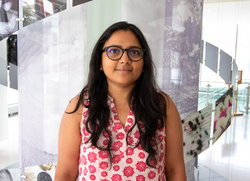
SIB graduate awards
Robert Emerson Memorial Award
The Emerson Award honors a former professor in the Department of Botany. Dr. Emerson was a distinguished and dedicated scientist of international stature in the field of photosynthesis. His research explored the action of pigments, including the carotenoids and phycobilins, in photosynthesis. Dr. Emerson received many honors in recognition of his scientific achievements and was a member of the National Academy of Sciences. This award was established by Dr. Emerson’s family and friends in the early 1960’s.
Awardee: Ratna Karatgi

My research explores the factors that drive and maintain variation in fin coloration in bluefin killifish, which exhibit both color polymorphism (discrete color morphs) and phenotypic plasticity in response to environmental conditions. I investigate how micro- vs. macrohabitat variation in the developmental environment influences plasticity in fin coloration. To uncover the genetic mechanisms behind this polymorphism, I analyze gene expression differences associated with fin color variation. Lastly, I examine how fin coloration and lighting environments shape aggression and boldness behaviors.
Isabel Norton Award
To provide research funding for advanced master's and PhD students for the completion of their thesis or dissertation research.
Awardees: Michelle Villalobos, Luke Settles, & Anne Aka
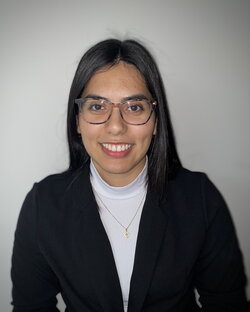
Michelle Villalobos: I am a MS student in EEB. Currently, I am doing research in Dr. Carla Caceres's lab, studying Daphnia dentifera, a keystone species in freshwater lake and pond ecosystems. My research focuses on studying the effects of the gut microbiome on host-parasite interactions in Daphnia dentifera and the fungus Metschnikowia bicuspidata. Currently, I am also investigating whether sex-specific differences in Daphnia also contribute to the tolerance of disease.
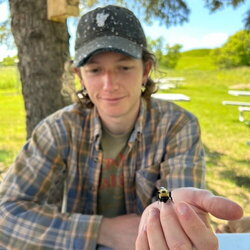
Luke Settles: I seek to address methodological uncertainties within the field of pollinator eDNA, such as the poor understanding of DNA deposition rates by target species as well as detection efficiency of widely used yet novel protocols. I propose running several iterations of calibration experiments which would indicate how much DNA was recoverable under controlled lab settings before scaling up, granting us a better understanding of field-collected data and contributing significantly to a knowledge gap in the field. Additionally, I would continue an existing project in collaboration with the U.S. Department of Energy comparing the efficacy of eDNA to traditional pollinator survey methods in solar facilities.
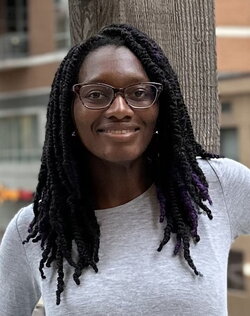
Anne Aka
Lebus Graduate Scholar Awards
This award was established by James Hagan to honor the memory of his aunt, Bertha Lebus. The award is to be used to support summer research for meritorious MS and PhD UIUC LAS students in the life sciences and other fields. This award is intended to recognize students with outstanding potential to succeed in their chosen academic field.
Awardee: Jeannette Cullum
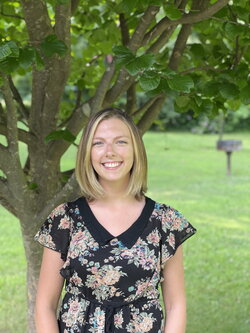
I am a Ph.D. candidate and NSF Graduate Research Fellow advised by Dr. Carla Cáceres in the Program in Ecology, Evolution and Conservation Biology. I study the impact of anthropogenic stressors on disease dynamics in freshwater ecosystems. I currently focus on the effects of pesticide runoff on a freshwater zooplankton, Daphnia, and its fungal pathogen. I plan to use this funding to investigate how exposure to pesticide pollution changes the microbiome of juvenile and adult Daphnia. This work will allow me to expand the scope of my research and explore links between host fitness and the microbiome.
Harley J. Van Cleave Research Award
The fund provides research support for graduate students investigating new frontiers and demonstrating promise and high aptitude in the fields of Cell and Structural Biology, Physiology, Ecology, Microbiology, Genetics, and related fields.
Awardees: Yutao Chen, Naomi Cobb, Samantha Dubbs, Anugerah Fajar, Anna Grimes, Timothy Legare, Chan Liu, Lauren Otolski, Sumashini Pagaldveatti, Vincent Prayugo, Ignacio Sparrow Munoz, Malavika Venu, & Allanis Vera Barron
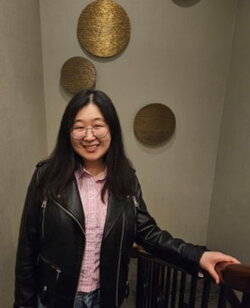
Yutao Chen: I’m from the ABC lab. I work on micro-, nano- topographies on insect cuticles and study their multifunctionality. My main project focuses on studying antibacterial property of the nanostructures on cicada wings and mimicking these structures on engineering material surfaces. I’m also exploring the structures and chemistry of other insect cuticles.

Naomi Cobb: My research aims to develop a computational model of the tarsal microstructures in Madagascar hissing cockroaches, providing insight into the mechanisms by which the cockroach maximizes surface area contact across different surfaces. The study will focus on the microstructures of the attachment pads and the structural integrity of the unguis. By employing Finite Element Analysis (FEA), this work will contribute to the development of bioinspired adhesive materials and establish methodology for comparative studies on attachment structures in other insect species.
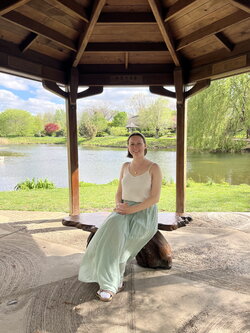
Samantha Dubbs: I am a current second year graduate student in the Entomology Department at the University of Illinois at Urbana-Champaign and co-advised by Dr. May Berenbaum and Dr. Adam Dolezal. My current research focuses on various aspects of honeybee-derived propolis – including chemical composition, its effects on honeybee physiology, and honeybee resin foraging behavior.

Anugerah Fajar: I am first year PhD student In Dr. Xuguo Zhou Lab. I come from Indonesia. Currently planning to study termite behavior and the genes that may affect the behavior. For starters, I am looking for the connection between foraging decision-making process and foraging-related gene expression level which I will start investigating this summer. This stipend means a lot for me to ensure a sustainable working condition during summer period. For the future, I hope I can expand my study to not only behavior but also into termite physiology too.
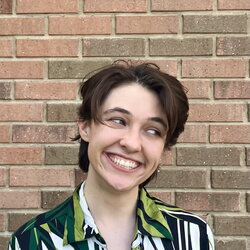
Anna Grimes: I study Daphnia, a genus of aquatic crustaceans that float through the water column and play a vital role in freshwater ecosystem function. My research focuses on how these keystone species detect and respond to predator cues, and how human impacts, like pesticide runoff, might disrupt these defenses. This award will support both fieldwork in local aquatic systems and controlled lab studies to better understand environmental stressors and predator-prey dynamics.I study Daphnia, a genus of aquatic crustaceans that float through the water column and play a vital role in freshwater ecosystem function. My research focuses on how these keystone species detect and respond to predator cues, and how human impacts, like pesticide runoff, might disrupt these defenses. This award will support both fieldwork in local aquatic systems and controlled lab studies to better understand environmental stressors and predator-prey dynamics.
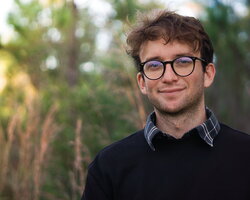
Timothy Legare: I am a first-year PhD student in the Fuller lab, studying drivers of speciation. I am particularly interested in hybridization and behavioral isolation's role in maintaining and degrading species complexes. I am currently investigating the Lucania killifish, after their recent introduction into the San Francisco Bay. This award will allow me to begin sequencing killifish from the bay, so we can begin investigating and comparing their population dynamics to what we already know from Florida, their native range.
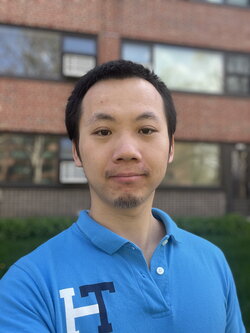
Chan Liu: I am pursing a doctorate degree in entomology under the supervision of Dr. Xuguo "Joe" Zhou in the Department of Entomology. My research focuses on understanding the evolution of social organization in termites and cockroaches. Specifically, I aim to identify both genomic and behavioral factors that might have fostered the emergence and elaboration of social traits in these insects. This scholarship will support me in developing bioassays to explore the relationship between learning behavior and social organization in termites.
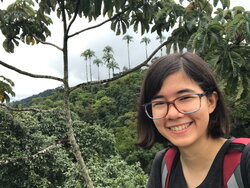
Lauren Otolski: I am a PhD student in Jim Dalling’s lab, researching factors influencing tropical wood decomposition. Last January, I collected samples from my wood decay experiment in Panama, and will be working this summer to link fungal decomposer communities with initial wood traits.
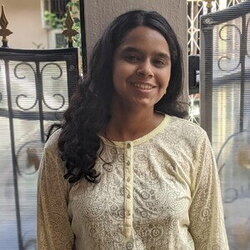
Sumashini Pagaldveatti: I'm studying seed-fungal interactions in a wet tropical forest using fig species as a model system. I intend to understand host preferences of fungi among congeneric species and their host specific effects. I'm also exploring the impact of land use change such as edge effects on seed-fungal interactions.
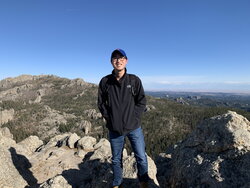
Vincent Prayugo: I'm a 2nd year PhD student at the Dolezal Lab studying the effects of stressors in honey bees, specifically pesticides and viruses. I plan to use the funding to research the potential of Israeli acute paralysis virus (IAPV) to manipulate immature honey bee cuticular hydrocarbons profile to increase its fitness within the colony.
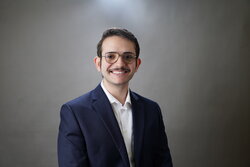
Ignacio Sparrow Munoz: I study and develop synthetic biology techniques and apply them to plants in order to help create the new generation of supercrops. This award will directly fund my travel to the 2025 Synthetic Biology Engineering, Evolution and Design conference in Houston, TX, where I will be able to share the incredibly exciting work we have been performing here at UIUC and establish new connections for future collaboration.

Malavika Venu: I am studying the evolutionary origins of eusocial behavior using Drosophila melanogaster social networks.
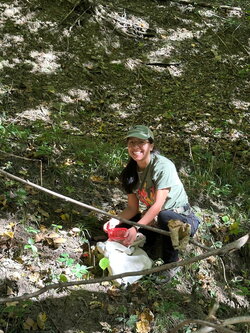
Allanis Vera Barron: I am a second-year PhD student in the department of Plant Biology. My research pursues studying and understanding the interactions between plants and microorganisms, specifically the induced immune response of seeds against the attack of fungal pathogens in tropical forest ecosystems. This study will provide us with a better understanding in how the coffee microbiome is shaped at different stages of coffee fermentation and how different microorganisms could influence coffee flavor in one of the most priced coffee variety “Geisha” in Panama. This award will help me to process my samples from Panama through DNA extraction and sequencing. I really appreciate the support that you all give, specifically, in this research field.
Francis M. & Harlie M. Clark Summer Fellowship & Research Support Grant
These grants were established to honor Dr. Francis M. Clark and his wife, Harlie M. Clark. Dr. Clark joined the then Department of Bacteriology, later the Department of Microbiology, as an instructor in 1933, after having completed his undergraduate and graduate work here previously. He had a distinguished career, teaching microbiology and conducting research in the microbiology of foods. He was past president of the Illinois Society for Microbiology.
Awardees: Tristan Barley, Abby Webber, Becky Cloud, Siqi Han, Satinderpal Kaur, Yuqiao Li, Gio Madrigal, Simmi Rana, Adrien Seabloom, Nina Shearill, & Julia Jehn
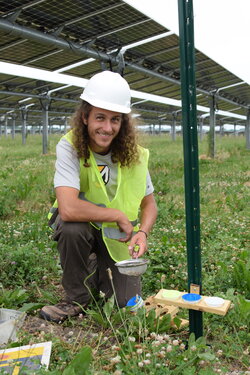
Tristan Barley: I am a Ph.D. student in Dr. Adam Dolezal's lab studying the potential effects of apiary presence on native bee communities. Specifically, I plan to use this funding to better understand if honey bee pathogens are more prevalent in native bees when apiaries are present. This research will help inform native bee conservation efforts, while also providing opportunities for undergraduates in Dr. Dolezal's lab to get experience conducting ecological field work.
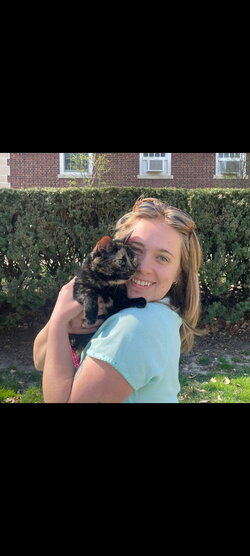
Abby Webber: I am a PhD candidate in Phil Anderson's lab studying the evolution of parasitoid wasp ovipositors!
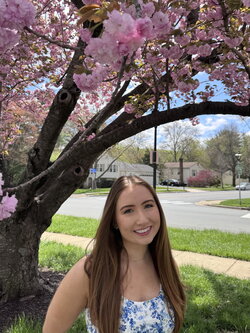
Becky Cloud: I am a PhD candidate in the Cáceres lab researching Culex mosquito microbiomes. I plan to use this award to fund experiments evaluating the interaction of Wolbachia infection and stress on mosquito life history traits and vector competence.
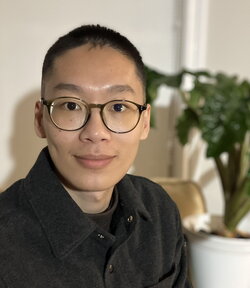
Siqi Han: I am studying the organization of the primary somatosensory area of rodent brains and its connection to the development of complex social behaviors. I plan to use the funding for my experiments, such as histology and/or MRI data acquisition. This funding allows me to explore the relationship between in-vivo brain anatomical features and its counterpart in histologically prepared brains.
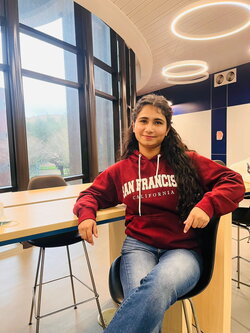
Satinderpal Kaur: I am doing my Ph.D. in Entomology. My research is majorly focused on understanding the effect of flooding stress of maize on plant- insect interactions. I will be working in a field project in which we artificially flooded the maize crop and I will be analyzing the metabolomic profile changes in the maize plants in response of flooding stress, and the implications of these metabolite changes for insect feeding. I plan to use the funding to my summer research, this summer I will be conducting the second season of this field study. This scholarship will be very helpful for me in conducting my field research as well as it will motivate me to work more effectively.

Yuqiao Li: I’m a graduate student from Program in Ecology, Evolution & Conservation biology (PEEC) at the University of Illinois. My current research is related to population genetics. I’m assessing the susceptibility to chronic wasting disease of the Columbian white-tailed deer using sequencing techniques. This award would provide essential support for our experiments and contribute to the protection of the deer population.
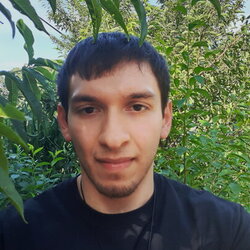
Gio Madrigal: I am using population-level genomic data to characterize the fin color polymorphism in male bluefin killifish. I will use long-read sequencing to supplement the limited information inherit to short-read sequencing.
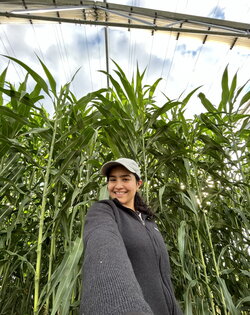
Simmi Rana: I am a PhD student in the plant biology department researching the mechanisms contributing to nitrous oxide production in agricultural fields. This funding will assist in my travel to a conference this year to present my research relating to greenhouse gas emissions from a droughted field under a rainout shelter facility.
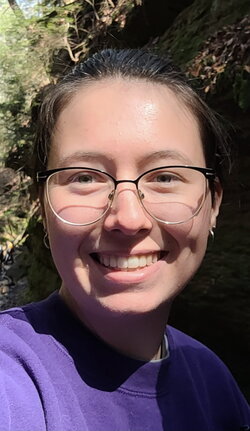
Adrien Seabloom: I am working towards my PhD and pursuing research about native bees, specifically the effects of agricultural fungicides on ground nesting bees. I plan to use the funding to research the effects of Pyraclostrobin on ground nesting bee larval development and nesting behaviors. This fellowship will help me complete essential pilot studies over the summer that will pave the way for the rest of my research on pollinators throughout my time here at UIUC.
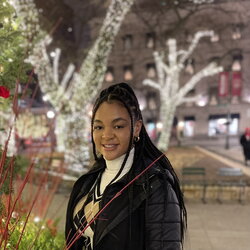
Nina Shearill: I am a MS student in Dr. Carla Caceres' lab. I am currently studying the effects of temperature on the density of Wolbachia pipientis in Culex pipiens mosquitoes. These funds are greatly appreciated.
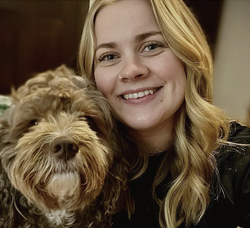
Julia Jehn: I'm pursuing my PhD in plant ecology and physiology, exploring how herbivory influences plant phenotypes. The funds will expand my research from greenhouses to natural habitats, crucial for understanding ecological processes. Your support fuels our lab's efforts to unravel plant responses to ecological challenges, shaping the future of plant science and conservation.
Mary Willson Graduate Research Fund
Mary Willson was one of the early architects of the field of evolutionary ecology, a discipline which examines the origin and function of traits that contribute to organismal adaptations in nature. A hallmark of Mary’s contribution to the field is the union of a strong conceptual foundation with an appreciation for the natural history of organisms.
During her long and distinguished career on the faculty at the University of Illinois (1966-1990), she moved the field forward by not being limited to the standard approach of asking “how” organisms behave a certain way, and instead asked “why” they do so. It is this perspective that inspired her students and colleagues to pursue studies of major unresolved questions in avian ecology, plant ecology, and plant-animal interactions, while embracing the rich diversity of nature.
The Mary F. Willson Graduate Research Fund will help cover the cost of supplies and travel associated with graduate student field research.
Awardee: Julia Jehn

I'm pursuing my PhD in plant ecology and physiology, exploring how herbivory influences plant phenotypes. The funds will expand my research from greenhouses to natural habitats, crucial for understanding ecological processes. Your support fuels our lab's efforts to unravel plant responses to ecological challenges, shaping the future of plant science and conservation.